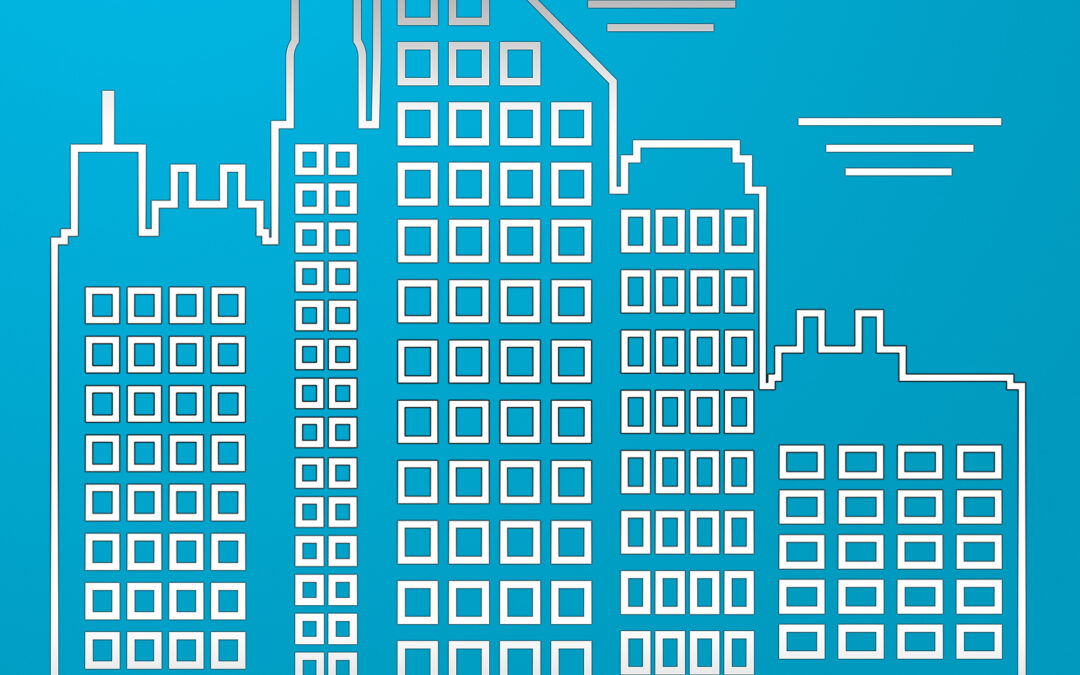
With the cost of real estate on the rise, the decision of whether to lease or purchase a business property is a big one.
Owning your property can have great investment benefits, but is costly to manage and maintain. Renting offers more flexibility and less responsibility, but won’t provide the same long-term financial equity.
Leasing and purchasing each have unique benefits and challenges. Which is best for you? To help you determine the best option for you and your business, consider these 5 factors.
Leasing vs Purchasing Commercial Real Estate – Top 5 Questions to Consider
How much do you expect your business to grow?
Are you a brand new startup with plans to double your employees and/or production within the next few years? Or are you an established business expecting consistent, but manageable growth?
There is much more to purchasing a property than simply making an offer and taking out a mortgage—there are legal fees, transfer taxes, and moving costs involved with changing locations, and ideally, you should aim to comfortably run your business in one space for as long as possible.
If you’re expecting to need a new space in under 5 years, it may be worth it to lease until you have a clear idea of your employee numbers and production volume.
What’s more important – flexibility or stability?
Do you like the idea of moving from place to place every few years, or do you find the stability of a mortgage more appealing?
If you crave change more frequently and don’t like the idea of being locked into a place for too long, leasing gives you that flexibility.
However, if you’re more comfortable with the idea of stability, owning offers fewer risks (i.e.: unexpected rent increases) and more opportunities to do what you want to the space (i.e.: renovations, updates, painting, etc.).
How much maintenance are you comfortable with?
Whether you lease or purchase a commercial real estate property, there is a certain level of maintenance required. But owning a property comes with additional and unexpected costs. When you’re leasing and an issue arises, your landlord is often responsible for the repairs. But when an issue arises in a property that you own, you are responsible for your repairs.
If you don’t currently have a backup fund for unexpected repairs, leasing may be the best option for your business until you have a financial cushion to fall back on.
What’s the current commercial real estate market like?
Before buying or leasing, research neighborhoods and future development plans in the area, as well as real estate patterns and interest rates.
Ask yourself what factors are most important for your business when it comes to location, and search the neighborhoods that best meet your criteria. If real estate prices have skyrocketed where you’re looking, leasing may be your best option until the market cools, and alternatively, if you know of an up-and-coming commercial area, it might be worth it to purchase a property while prices are low.
What is your ultimate goal for the property?
A property is a huge investment, and like any investment, it could make you money or it could also cost you money. To set yourself up for success, it’s important to establish your goals, do your research, and then consider all factors before making a decision.
If you do these things, you can make sure you’re purchasing your commercial property in an area that’s not only ideal now, but also shows signs of improvement in the future.
And if your goal is really just to find a space for your business, not an investment, or if the commitment of owning makes you nervous, leasing is a great option.
Both ownership and tenancy have their pros and cons, and by considering these 5 factors, you’ll have a better idea of the route that best meets your business’s current and future needs.


Recent Comments